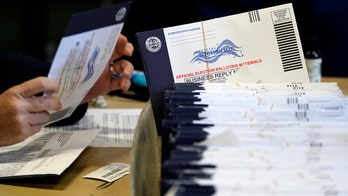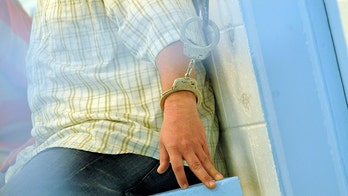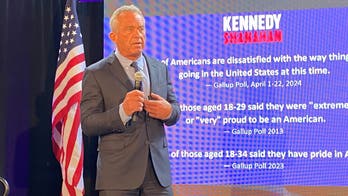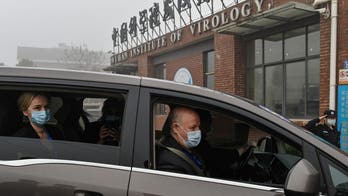Man facing charges for silent protest near Supreme Court
Accused of violating 'no speech zone'
Harold Hodge believes in the power of protest.
“It’s important,” he said as he walked on First Street in front of the steps of the U.S. Supreme Court. "I believe people should have the right to protest and picket against the government.”
But, he says, it’s a right that is disappearing.
“They,” he said, as he pointed up at the white columns, “are taking it away from us.”
In January 2011, Hodge was standing on the public plaza above the steps of the court wearing a sign around his neck. It read “The U.S. Gov. allows police to illegally murder and brutalize African-Americans and Hispanic people."
Video of him shows he was still and quiet and more than 100 feet from the Court entrance. Nonetheless, officers arrested him, charging him with violating a so-called “no speech zone.”
“These things are popping up all over the country,” said John Whitehead of the Rutherford Institute, which is defending Hodge in court, “where people can only speak when they are pushed away to the side.”
“I’m astounded,” he said. “Especially when you see the footage of Harold Hodge standing silently with no one else around. He wasn’t blocking anybody’s egress. He wasn’t talking to anybody. If you can’t do this in front of the Supreme Court, there’s no such thing as free speech.”
Whitehead says officials have been increasingly implementing “no speech zones” around government buildings and important government events, like political conventions.
“This is a dangerous trend that's been going on for a number of years,” he said. “Putting people so far away from government officials that government officials can't hear the speech. Well that means the First Amendment means nothing, They are destroying the First Amendment.”
“Not so,” said Tom Ruskin, a law enforcement advocate who calls no-speech zones “necessary.”
“We are not limiting free speech in front of the Supreme Court or anywhere else. We are simply moving the demonstrators back so they don’t interfere with securing the area.”
He says the zones are nothing new.
“Law enforcement has consistently moved people to better areas for them to demonstrate.”
Ruskin points out that protesters should not have the right to disrupt government business.
“People need to enter the buildings and leave the building.”
“[Police] are just moving the protesters back for everyone’s safety.”
It’s not a good argument,” said Rutherford. “The people you are petitioning have to be in some sort of range. In other words, somebody has to be able to read your sign. If they put you so far away that the government officials can’t hear you, free speech has no effect.”
Hodge says he just wants some acknowledgement.
“I want someone to listen to me,” he said. “I want someone to see me.”
Hodge faces up to 60 days in jail and a $500 dollar fine.





